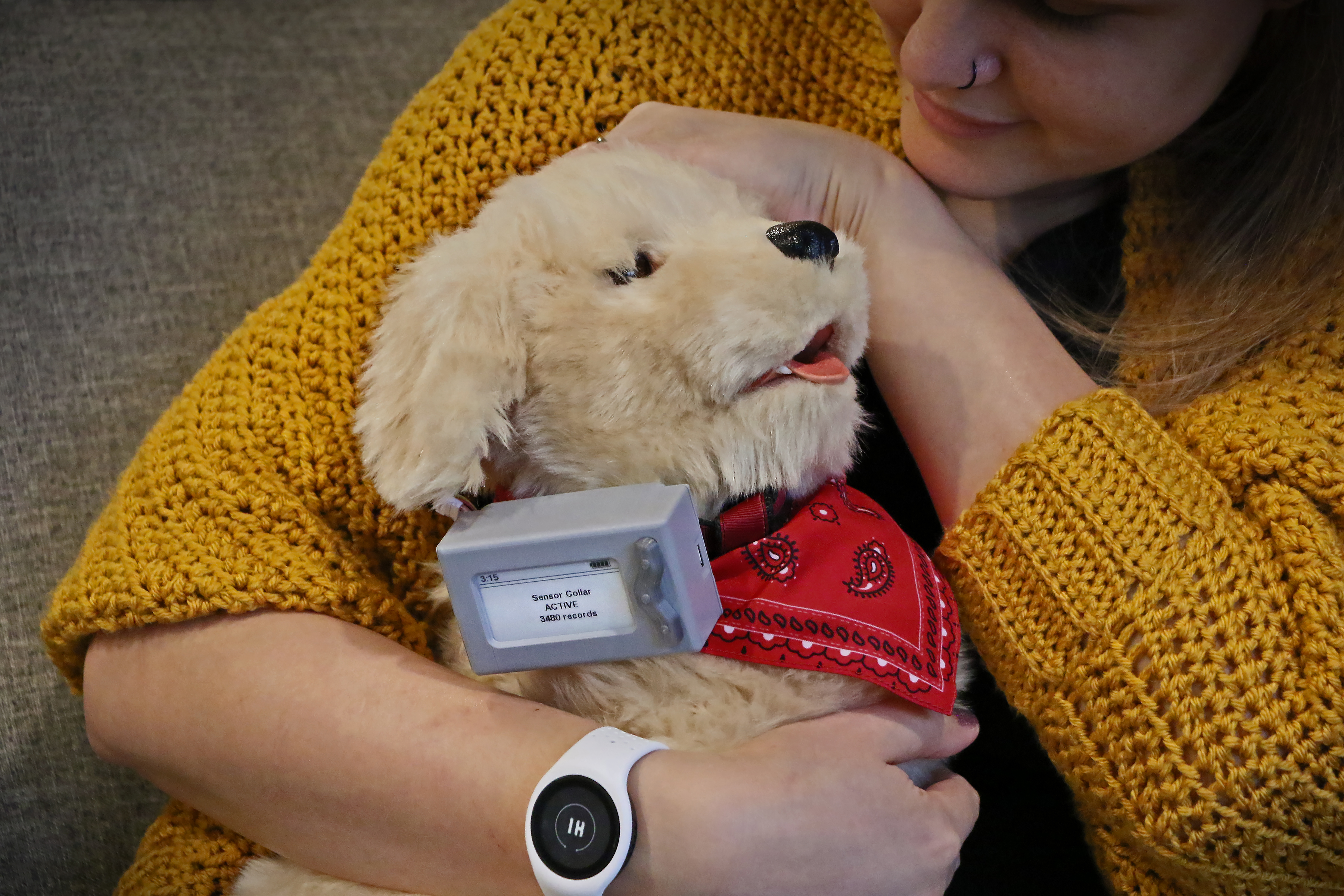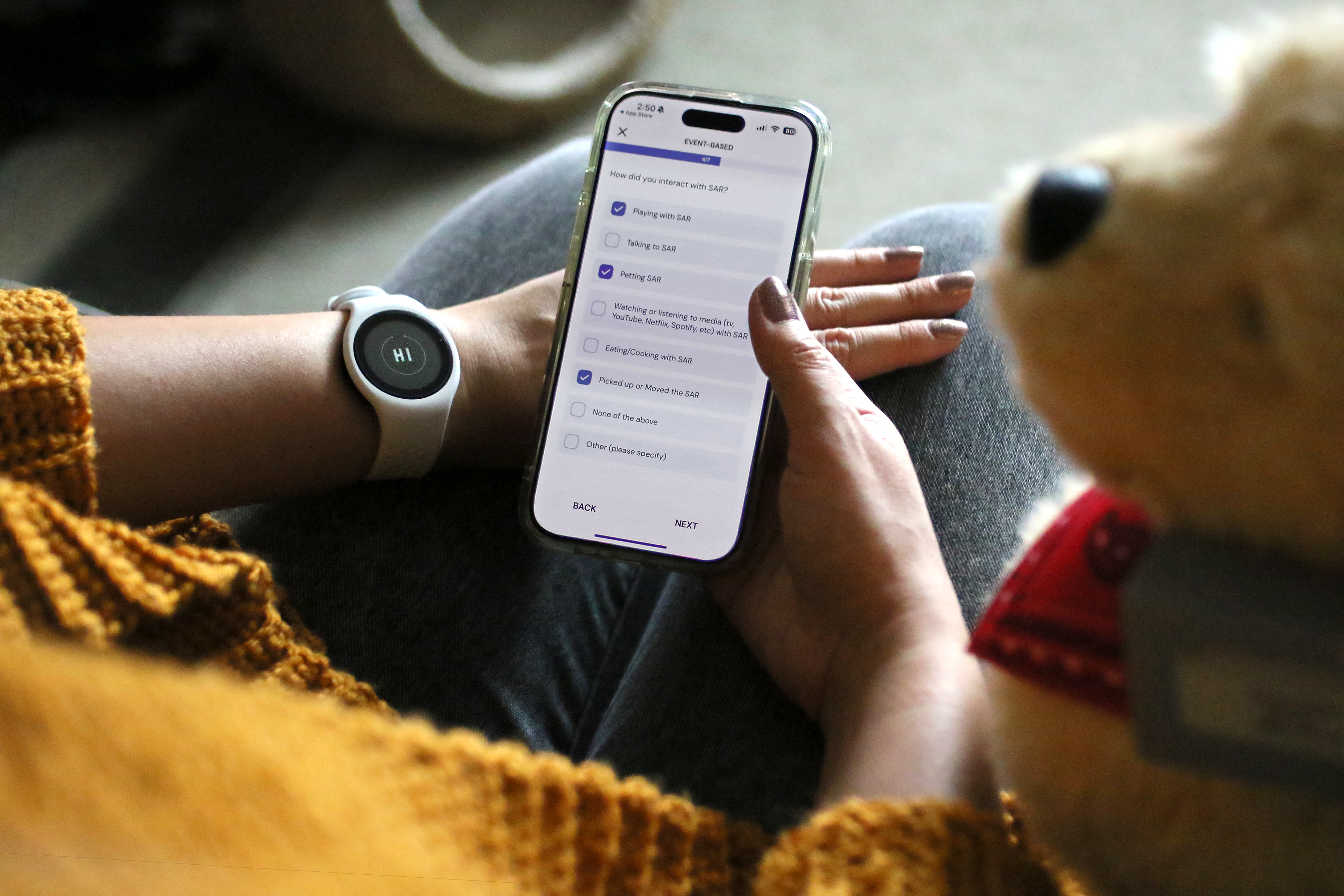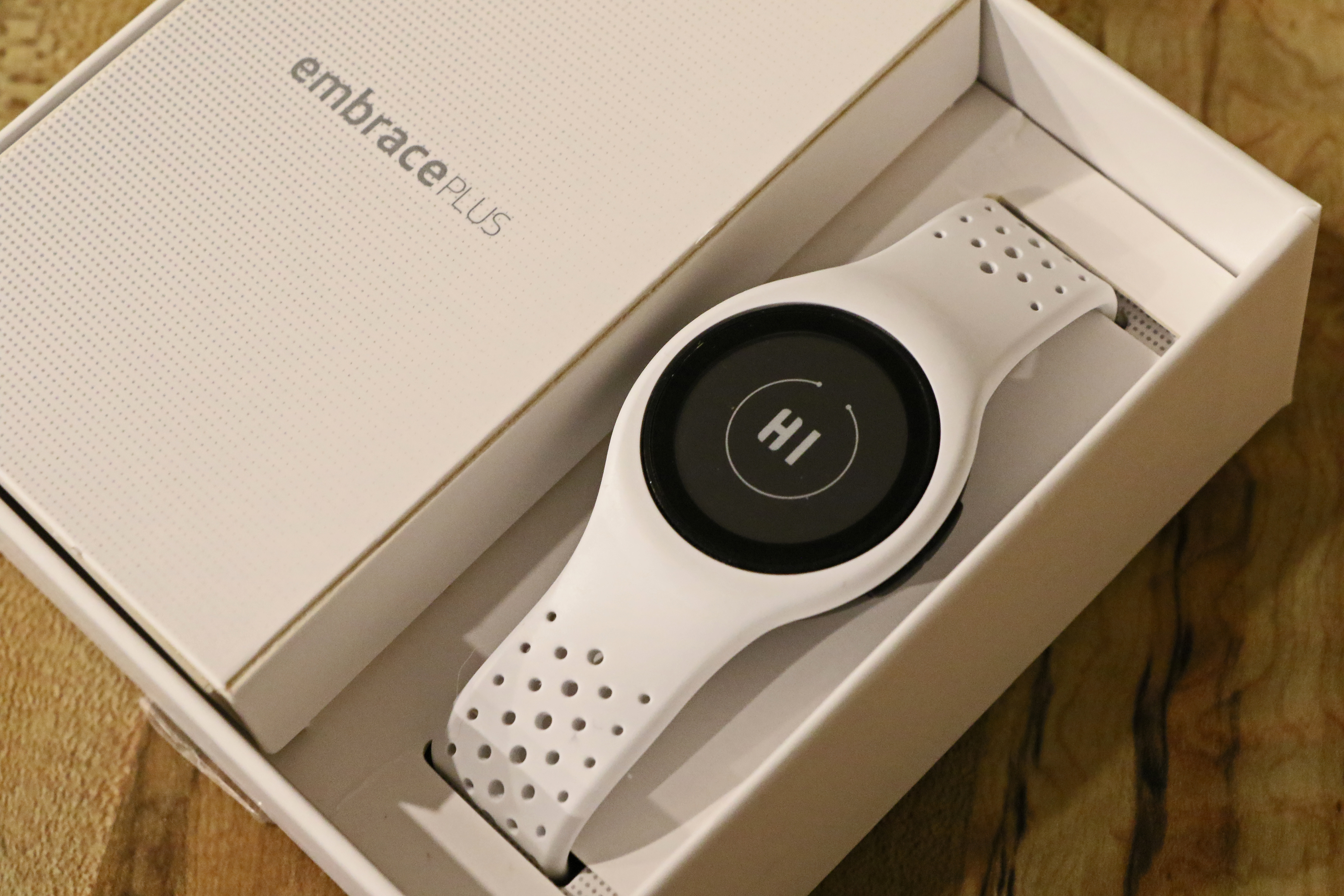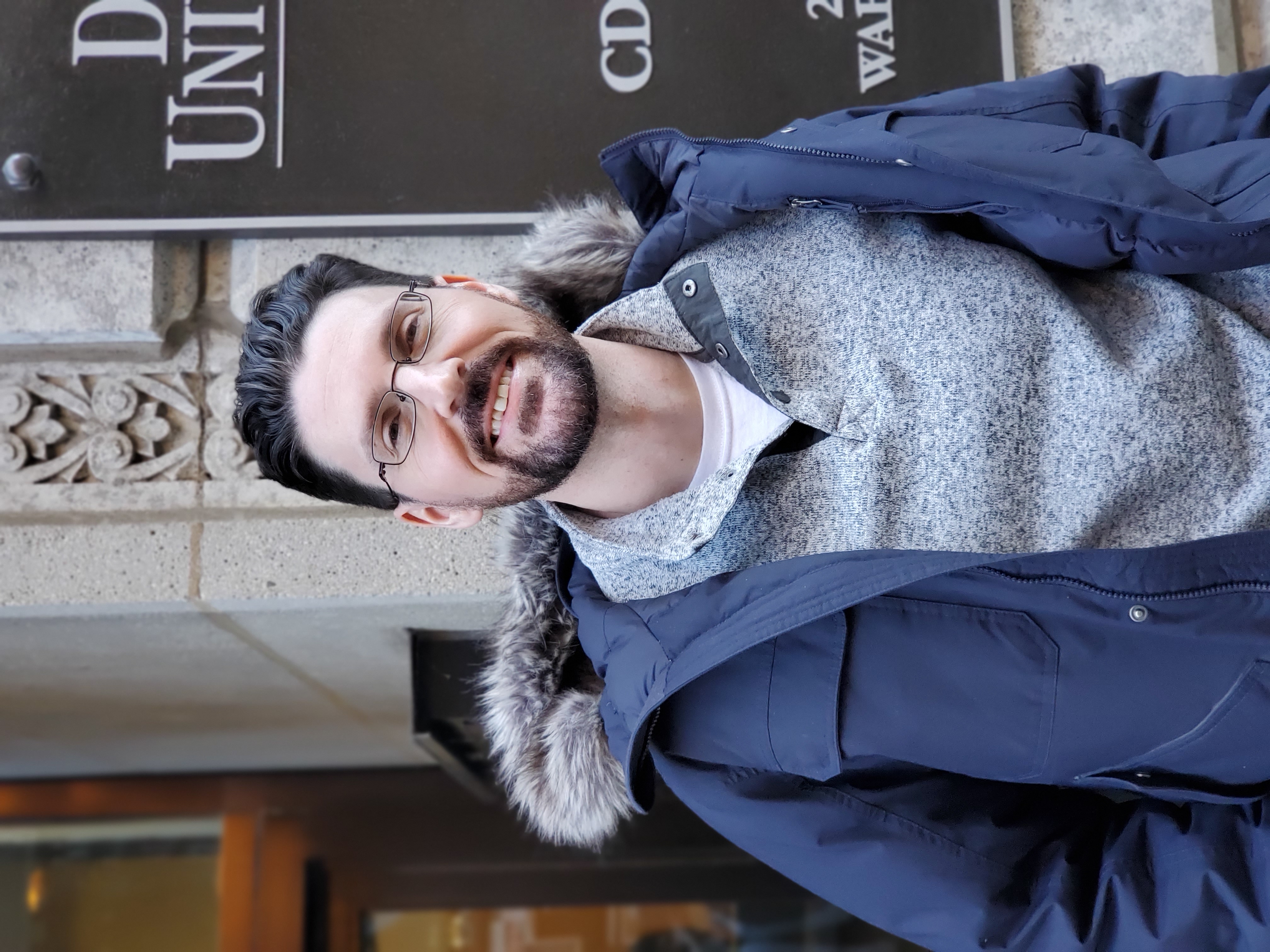
Robot dogs with sensory technology can predict a patient's health trajectory. (Photo courtesy of Casey Bennett)

Stuffed dogs with sensory suites can be used to track a patient's health based on how they interact with it. (Photo courtesy of Casey Bennett)

AI and wearable technology can help people make better daily health decisions. (Photo courtesy of Casey Bennett)
After conducting robotic health research in South Korea for several years, Casey Bennett returned to the U.S. with a new approach to health informatics. Bennett, now an assistant professor and chair of the Health Informatics program in the School of Computing, uses biomedical data to improve human health. Bennett connects artificial intelligence and cyber-physical technology—the next generation of devices like smart watches. He says a new wave of products making data-driven decisions are poised to improve health outcomes.
“Wherever you are is where healthcare happens. It’s not restricted to showing up at the doctor's office,” Bennett says.
By focusing on these systems, Bennett is reimagining DePaul’s health informatics program so students can investigate how computer structures, algorithms and AI can improve healthcare inside and outside the clinic. Bennett is one of several DePaul experts speaking at the College of Law’s Jaharis Symposium, “Artificial Intelligence in Health Care: Existential Challenges for Law & Ethics.” In this Q&A, Bennett shares plans for the updated health informatics program, and his vision of the future of the industry.
How is AI and machine learning technology used in health?
We live in a world of devices. We have smartphones, smart televisions and our cars are like rolling computers. When all those devices talk to each other, that’s called the Internet of Things. If devices can talk to each other, then they can share knowledge and have new capabilities like cyber-physical systems, where a device could regulate itself without human intervention.
Smart thermostats are a good example, where you set a temperature and it regulates without a person adjusting it. This technology helps track data, but the real challenge is figuring out how to go from tracking data to improving human decision-making. That’s where AI comes in. AI helps to find new areas of opportunity, things people don’t already know, with actionable decisions to improve patients’ health.
What kinds of things can this technology do?
 Casey Bennett teaches health informatics. (Photo by Jade Walker/DePaul University)In my research I’ve found that there’s a lot this technology can do. We have robotic pets we give to people with brain health issues like dementia or Alzheimer's. The pets are covered with sensors and can be therapeutic substitutes for real pets, but they can also provide data on the patient’s brain health. Through subtle interaction patterns, you can tell a lot about a patient’s health status and anticipate if they are getting better or worse.
Casey Bennett teaches health informatics. (Photo by Jade Walker/DePaul University)In my research I’ve found that there’s a lot this technology can do. We have robotic pets we give to people with brain health issues like dementia or Alzheimer's. The pets are covered with sensors and can be therapeutic substitutes for real pets, but they can also provide data on the patient’s brain health. Through subtle interaction patterns, you can tell a lot about a patient’s health status and anticipate if they are getting better or worse.
We can do something similar with smartphones using an app called BiAffect. The app allows us to see how users type and how the phone moves, measuring acceleration without looking at the content of what they typed. Based on if their phone is moving side to side, how fast or slow they type, or how often they use backspace, we can predict somebody's health trajectory just as accurately as we can from a hospital’s electronic health record or doctor's note. This can also be done with wearables and Internet of Things devices.
Traditionally, healthcare has been perceived as something you do when you enter a doctor’s office or a clinic. A doctor saw you, and you went home. There’s always going to be a role for that in healthcare, but healthcare is something that happens every day. It’s about our daily choices and behaviors. With this technology and with health informatics, we can go beyond the clinic to help people make better decisions for their health.
What is DePaul’s vision for the Health Informatics program?
Our vision is to make the program more about AI and healthcare specifically. That includes the data science side of things, like machine learning, and the technology and digital health side.
Many health informatics programs are a little out of date because they were designed in the early 2000s. A lot has changed in the last 20 years, so we’re revamping the curriculum to focus on AI in healthcare and health tech startups.
Given our location in the heart of one of the world’s major cities (Chicago), we’re uniquely positioned to build something special in the health informatics space. We want to make it accessible, not just to computer science people, but also to clinicians who want to increase their tech skills. While making the program we must ask, “Where do we think we’re going to be in 10 years?” and design courses for that.
Where do you think the health informatics industry will be in 10 years?
I think in the future there are going to be career opportunities for people who are digital health specialists, on both the data side and hardware side. Tomorrow's clinicians will do healthcare in a more data-intensive fashion.
Many clinicians have been trained to solve problems step by step, but a lot of people have multiple health issues. If we come at it from a more data intensive manner, unexpected relationships appear and perhaps that problem can be solved more effectively through those underlying causes and relationships. We can only understand those if we’re looking at the data.
Learn more about Health Informatics in the School of Computing online.
Jade Walker is a student assistant of media relations and communications in University Communications.